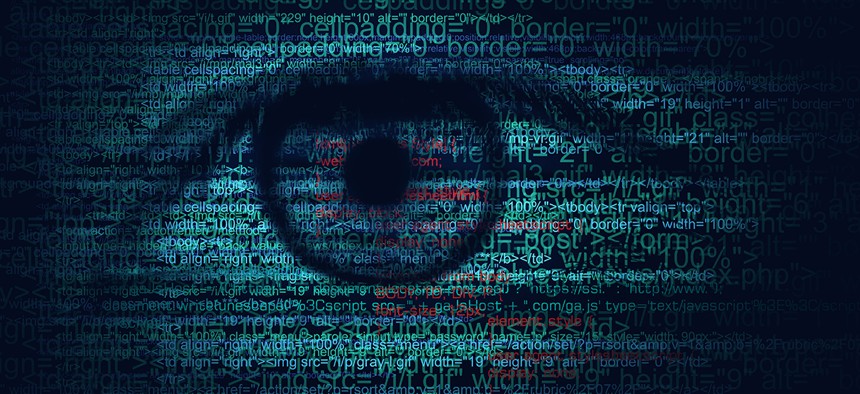The Intelligence Community Will Monitor Wearables to Find the Perfect Spy

Taiga/Shutterstock.com
The new program will measure each volunteer's biometric signals during their daily activities, according the Intelligence Advanced Research Projects Agency.
Secret agents typically use tracking devices to monitor foreign adversaries, but now, U.S. spies will assess their own capabilities by outfitting (willing) intelligence personnel with body sensors.
Yes, spies have plans to spy on themselves with wearables.
"Selecting and evaluating a workforce that is well-suited for the psychological and cognitive demands of the diverse positions across the intelligence community is an important and persistent need," states a pre-solicitation notice for interested testers.
To tackle this staffing challenge, the Office of the Director of National Intelligence will embark on MOSAIC, and harness "mobile, worn and carried sensors” for friendly signals intelligence.
The program will measure volunteers' biometric signals during their daily activities, according the Intelligence Advanced Research Projects Agency, the test lab of ODNI.
The biofeedback captured will relate to behavior, physiology, social dynamics, physical location and proximity, among other data sources that all will be aggregated, officials say.
» Get the best federal technology news and ideas delivered right to your inbox. Sign up here.
This might not seem like the most novel idea from an agency whose mission is taking big risks for high payoffs, like predicting the future.
Corporations already are taking the pulse of employees with Fitbits and other health-monitoring devices to boost productivity.
But IARPA's program is a bit more ambitious, it seems.
MOSAIC expects to allow intelligence agencies "to evaluate an individual’s psychological drivers, cognitive abilities and mental wellness and resilience," the program announcement states.
Body diagnostics should help intelligence agencies "select the right person for the right job," as well as "evaluate and help maintain optimal performance throughout their career," IARPA officials say.
There also is a prediction factor to the personnel evaluation program. Data from digital accessories is expected to "anticipate changes in an individual that may impact their work effectiveness, productivity and overall health and wellness," officials say.
With a program as intimate as this one, test subjects must provide informed consent to participate.
The intrusiveness of employee body-monitoring is an issue the corporate world currently is grappling with.
Edward McNicholas, co-leader of privacy, data security and information law at law firm Sidley Austin, recently told the Wall Street Journal that employers should take into consideration employees' physical or mental differences when rating performance based on Fitbit metrics, Apple watch sensors and such.
"If the results of this sort of tracking led to discrimination against persons with conditions ranging from insomnia or depression or ADHD," organizations should adjust biofeedback evaluations, he said. "We should not deny ourselves the potential benefits of these technologies by banning them,” but keep a close eye on the abuse of data from wearables so "that they do not become new ways of discriminating against people."
During the MOSAIC program, there will be privacy safeguards in place, as well as legal, ethical and safety precautions, IARPA officials said.
Plus, researchers will study whether the body signals of an individual, in a number of situations, across time, have "convergent validity," or are a credible source of information, officials said.
The program is so focused on factoring in context that the word is part of its title. “MOSAIC” stands for "Multimodal Objective Sensing to Assess Individuals with Context."
The program will "test a suite of multimodal sensors to collect a range of subject-focused and situational data; build capabilities to develop an integrated model of the subject, their behaviors, and the social and physical context; and advance methods to personalize modeling approaches to develop accurate assessments of an individual over time," the announcement states.
Researchers also will evaluate the social environment and physical surroundings of the person to help interpret the results of the sensors.
IARPA will hold an Aug. 2 workshop in the Washington area for interested academic and industry researchers.
NEXT STORY: Learning to Fly a Balloon to Fly a Drone






